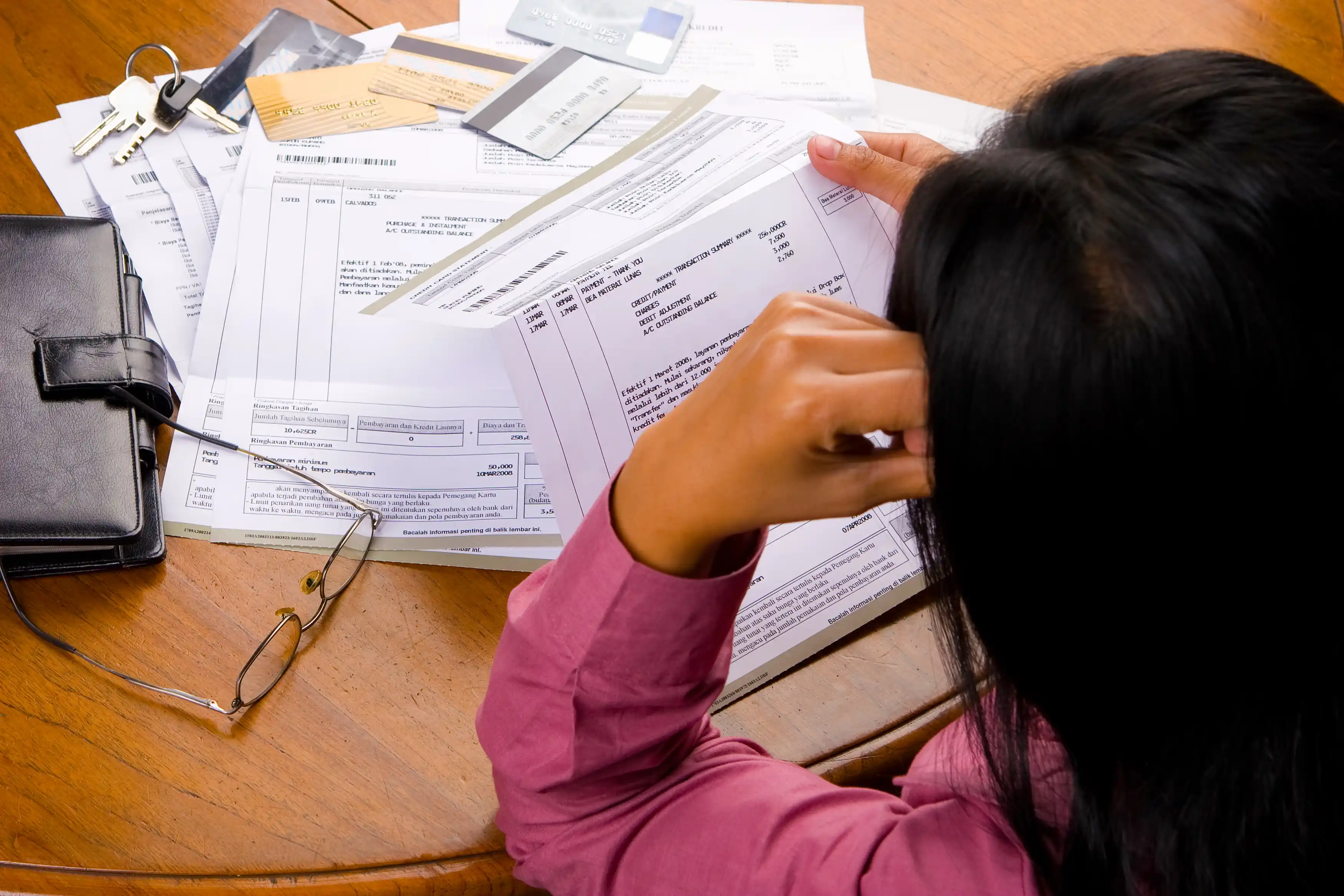Sometimes we make grand financial plans, but they end up turning into nothing. It’s just a reality of life. It happens quite often — more than we’d like to admit, in fact. You’ve probably been there too. You come up with a great plan to pay down that lingering debt, but then a sudden job loss or extra expense pops up and derails everything. Or you think you’ve nailed the interview for that new job, but don’t end up getting hired. Suddenly, your previous financial plans need a major retool. While it’s always good to have a plan in the first place, what are you going to do if (or when) your financial plans fail?
Preparing For Financial Setbacks
Right now, I’m in the process of trying to refinance my home. I already have plans for the $300 a month I’m set to save, should it all work out. However, it’s taking forever. What happens if the refinance doesn’t go through? I mean, I’ve already canceled my mortgage autopay with the expectation that the refinance will close in the next ten days. If something goes wrong, it’s going to be a huge hassle. I’ll have to reinstate autopay and make sure that my mortgage payments aren’t interrupted.
While my refinance falling through would be annoying, other financial setbacks can be a lot more difficult to deal with. A job loss or major medical expense can be a huge setback in anyone’s life. One day you’re saving for retirement, paying of debt, and starting a college fund. The next day, you’re wondering how to keep a roof over your head.
In order to prepare for these types of setbacks, here are some things to consider.
Diversify Your Income
Relying on just one source of income can lead to all sorts of problems later. If your financial plan fails, having income diversity can help you keep making the most important payments. This gives you a little more time to come up with a new plan.
The time to build the additional income streams is now. If you’re hoping for a passive income like dividend investments, they take time to grow. So get them started now, while things are still going well.
It’s That Emergency Fund Again
Your emergency fund can help you supply a Plan B for a certain period of time. You can also raid your retirement accounts or use your credit card to fund immediate purchases. However, that’s simply digging yourself a deeper hole that can be hard to get out of. That’s why most people really need to save a separate fund for this purpose. Yes, the money isn’t really earning much interest these days sitting in a savings account. However, be happy it’s just sitting there — that means you aren’t in a crisis.
Remember that any emergency fund will eventually run dry, no matter how much is in there. When you tap into the emergency fund, you need to make alternative plans immediately to begin earning money again, so that you can get back on track. (Don’t forget to replenish the fund once things are under control again.)
 Shutterstock
ShutterstockBrush Up On Skills and Networking
You might actually surprised at what’s available for you in terms of new opportunities. You just need to make sure you’re up to date with your skills and take the time to reach out. Turning to trusted friends, family members, or your career network when you run into a financial setback can produce new job openings that you didn’t even know existed. Don’t be afraid to tap into these resources.
When my friend lost his job a few years ago, he asked me about the inner workings of building a website. He ended up not pursuing his own path of entrepreneurship. However, that doesn’t mean our meeting was totally fruitless for him. When I caught wind that a company I knew was hiring, I sent the information along to my friend. If my friend never told me about his situation, I wouldn’t have known he was looking for work.
Don’t Be Too Down On Yourself
What if your plan has already failed? It’s only natural to feel down on yourself. However, try not to let that feeling linger. Even the best laid plans fail sometimes. Bad luck does happen, so it’s not even always your fault. On top of that, none of us are perfect. Mistakes happen.
No matter how dire the situation, there’s always light at the end of the tunnel. If you spend all your time being down, then you may miss out on the opportunity to salvage the situation. It’s a cliché, sure, but maintaining a positive attitude during tough times can really make a difference.
A Personal Story
I have a friend who also writes about financial advice for a living. He almost lost everything at the onset of the pandemic. He bought a new home right before the entire world economy shut down. His bid for that home was based on borrowed funds, using his stock holdings as collateral. You see, he was in a bidding war and could waive the financial contingency due to his assets. In other words, he looked like a cash buyer in the eyes of the seller.
He was planning to get a mortgage after closing on the house, to pay back his margin loan. However, the pandemic hit and his mortgage application was denied. The news of the shutdown also crashed the value of his investment portfolio. Suddenly, he was facing a margin call where the broker was about to sell his investment portfolio to cover the loan.
It was a really stressful time for him. However, he didn’t just sit there and feel sorry for himself. Instead, he sold some stocks, called everybody he knew to ask for advice, and eventually found a different lender for the mortgage. He had a great plan but got extremely unlucky with outside events conspiring against him. It can happen to anyone.
Make a New Plan
My friend made a new plan as soon as his original plan failed. I highly suggest you do the same thing when something doesn’t go as planned. If your attempt at a side business flames out, consider what went wrong. Think about whether there is a different side business that would work better for you. When your debt paydown plan gets off track, re-evaluate where you stand and make a new plan.
Be flexible. While you are trying to find a second business idea, be open minded if a job prospect opens up. There’s no shame in working in the corporate world. In fact, most people who are doing well financially do just that. Likewise, don’t pigeonhole yourself to think that you always need to save more or earn more to get out of debt. Saving more works, but so does making more. If you were counting on earning more and that door closes on you, then look for more ways to save.
 Shutterstock
ShutterstockTake Back Control
Sometimes, financial plans unravel to a point where you start feeling like everything is spinning out of control. If that’s the case, then it’s time to go back to the basics.
Sit down and take a deep breath. It’s time to roll up your sleeves when things don’t go your way. Take back control by figuring out where you stand now and then work toward a better financial future. It will be a journey but it can be done. Use these tips to start clawing your way back to a prosperous future:
Track Your Spending
The first step to gaining control of your finances is to know where that money is going. Many of us make financial choices or purchases without really thinking about whether these items are important to us. Unless you track your spending closely, you might not even be fully aware of where your money is going.
You need to use some method of tracking your spending. I use personal finances software. You can use a spreadsheet or even a pen and paper. The important thing is to record everything you spend money on. Then, you can look at your habits and find patterns. You might even discover that you spend more money than you should on certain categories. Once you understand your situation, you will be in a better position to take control and change your habits.
Institute a Waiting Period
One of the best ways to regain control of your finances is to institute a waiting period before you make any major or unnecessary purchases. A spending diet can help you get in the habit of exercising control over your spending. Choose a waiting period that works for you. Before you buy something, wait 14, 30, or even 45 days before you complete the purchase. If you have forgotten about the purchase by then (or realize you don’t really need it), you can decide to not buy it.
Just instituting a waiting period of a few days can make a big difference. I like to pause before I buy something and ask myself if I will really use it or if I truly need it. It’s not a huge waiting period by any means. However, it’s one that forces me to think through the options. More often than not, I end up putting the item back. Conscious spending is one of the best ways to remain in control of your money.
Clear Out the Clutter
You might be surprised at how helpful getting rid of the clutter can be when it comes to regaining control of your finances.
First of all, cleaning out your clutter can help you rethink your spending habits. It’s a good reminder of how often you make unnecessary purchases and it can help you rethink your priorities.
You can also benefit when you sell or donate the items. Selling the clutter allows you to boost how much money you have. Use that money to shore up your financial situation by paying down debt or building an emergency fund. It’s a good way to get back on track.
Once you have cleared out the clutter, make conscious spending your next step. Before adding again to the clutter, really think about what an item will add to your home or your life. If it doesn’t help, you can take back the power and say no to it.
The Bottom Line
There’s a good chance that we will all find ourselves in a bad financial spot every now and again. It won’t always be easy to pick yourself back up. However, you need to push forward through those tough times in order to find the light at the end of the tunnel. While you might not be able to control what has already happened, you can choose how you respond to the adversity. The good news is that it’s never too late. There’s always more money you can save, and there’s always more money to be made.








